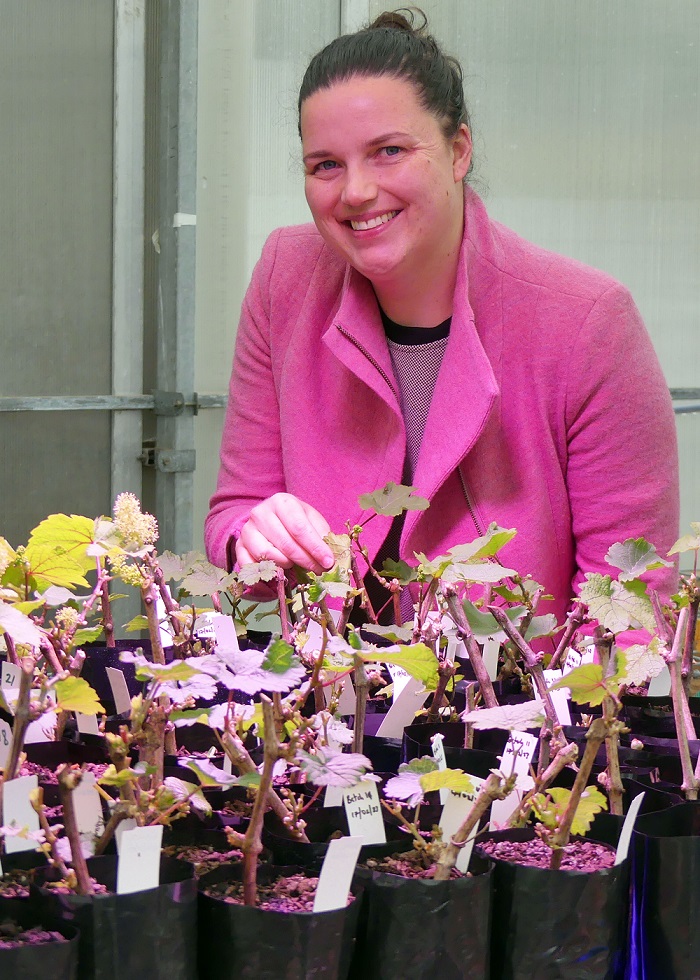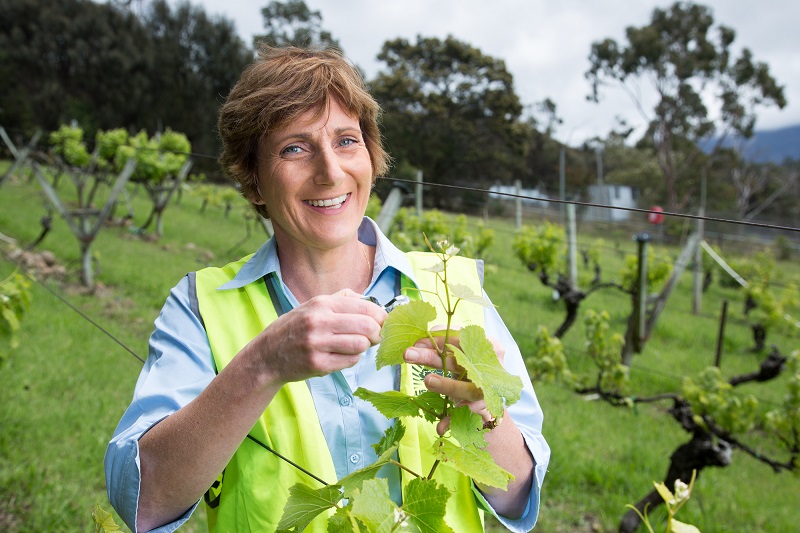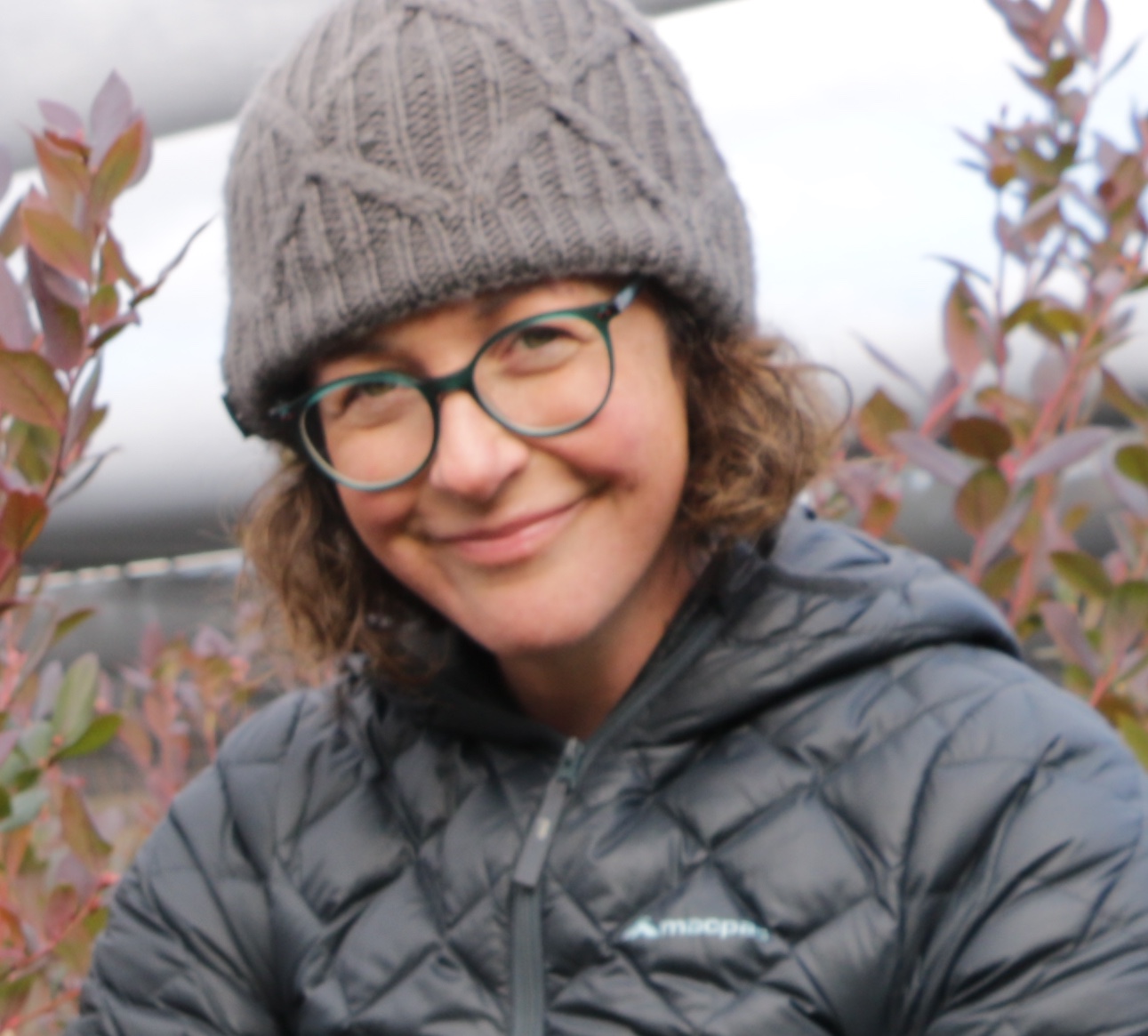Researchers from the Tasmanian Institute of Agriculture (TIA) are sharing findings from current projects at Wine Tasmania’s Annual Field Day in Launceston today.
Over 60 viticulture and winemaking representatives from the Tasmanian wine sector, together with complementary suppliers and government representative are expected to attend the event.
TIA projects being featured include:
Dr Tory Clarke - Early research on Bioclay™ for botrytis management
Dr Clarke will share her research to develop an RNAi (gene silencing) based crop protectant spray to protect wine grapes from botrytis diseases.
As part of the Australian Research Council Research Hub for Sustainable Crop Protection, the team are exploring an innovative product called BioClay™, which has the potential to revolutionise the wine industry by offering a sustainable and biodegradable alternative to chemical fungicides against botrytis bunch rot (BBR).
Dr Clarke said BBR poses significant challenges for grape growers, leading to considerable yield losses and costly issues during winemaking despite current management practices.
“We estimate that the processed value of winegrapes in Tasmania alone could be up to 24 per cent higher if costs due to botrytis disease are recuperated,” Dr Clake said.
“Good viticultural practices can counter some of the environmental triggers for BRR development, however a well-timed crop protectant can make the difference between a winemaker accepting or rejecting crop for a particular wine style.”
“With limited options and the constant threat of fungicide resistance, a new, effective and sustainable crop protectant will be a welcome addition to the crop protection toolbox.”
Professor Kathy Evans - Science of Botrytis
Professor Evans will talk about the effective management of botrytis bunch rot disease in winegrapes and the opportunity for producers to participate in collaborative trials to improve their botrytis management.
“It is about helping producers understand what crop, weather and pathogen factors are contributing to disease risk at their production sites,” Professor Evans said.
“We are seeking expressions of interest from wine grape producers in Tasmania who are willing to collaborate in the design and conduct of simple on-vineyard trials.
“Collaborators will select which botrytis management practices to test on their vineyards with expert guidance from the project team from idea to data collection and interpretation. This will be a valuable way for producers to find out what works for their specific vineyard and business.”
The project is funded by the Tasmanian Government’s Agricultural Development Fund with support from Wine Tasmania.
Associate Professor Kara Barry - Trunk Disease in Tasmania
Associate Professor Barry is collaborating with the South Australian Research and Development Institute on a national grapevine trunk disease project.
Associate Professor Barry’s research is focusing on how trunk diseases behave in Tasmania’s cool climate.
There are two main fungal pathogens which cause trunk diseases and both are becoming more of a concern for aging vineyards, including in Tasmania. The Tasmanian aspect of this project includes grapevine inoculation trials with both of these pathogens, followed by assessment of disease development.
“Through these trials we are attempting to understand the susceptibility of pruning wounds of grapes to trunk disease,” Associate Professor Barry said.
“Specifically, we want to know how the timing of pruning impacts the risk. For example, is it better from a disease management perspective to prune in early, mid, or late winter?”
The Tasmanian trials will combine with trials being led in NSW, WA and SA to give a national picture of how trunk disease differs by region and climate.
Want to get updates from TIA directly to your inbox? Subscribe to receive our monthly newsletter and industry specific updates and events.





